Footage from Borodyanka, Ukraine shows residents in line for food after Russian attacks on the town
Residents in the outlying town of Borodyanka line up for food from an aid organization after the town was devasted by relentless Russian artillery.
KYIV, Ukraine – When I first arrived in Ukraine on January 23, the skies were gray and the weather cold. In the depths of winter, it snows in Kyiv almost every day and the sidewalks are treacherously icy. At the small coffee kiosk, little more than a hole in the wall, a young barista whipped up hot lattes and said she wasn’t worried about the prospect of war. She was far from alone.
Despite tens of thousands of Russian troops and artillery gathering at the border for what Moscow called military exercises, few people in Ukraine believed Russia would invade their country. There was no sense of urgency, no stocking of food staples, no panic buying. Most people we spoke to hadn’t packed a bag or made any plans to evacuate. But the signs of conflict were ominous.
Russia was already fighting a propaganda battle. Slickly produced video from the Russian Ministry of Defense highlighted their military superiority. Footage captured well-drilled soldiers maneuvering sinister-looking mobile missile launchers into position. Russian MLRSs were pictured firing barrages of rockets, frightening images for a potential David versus Goliath battle.
By early February, Western intelligence reports were projecting that Kyiv would fall within days, that tank divisions would roll past Chernobyl and into the capital. And still, Ukrainians seemed to be in a state of denial. However, behind the scenes the government had been preparing for years, digging in, and burrowing trenches along the eastern front for what it considered an inevitable fight.
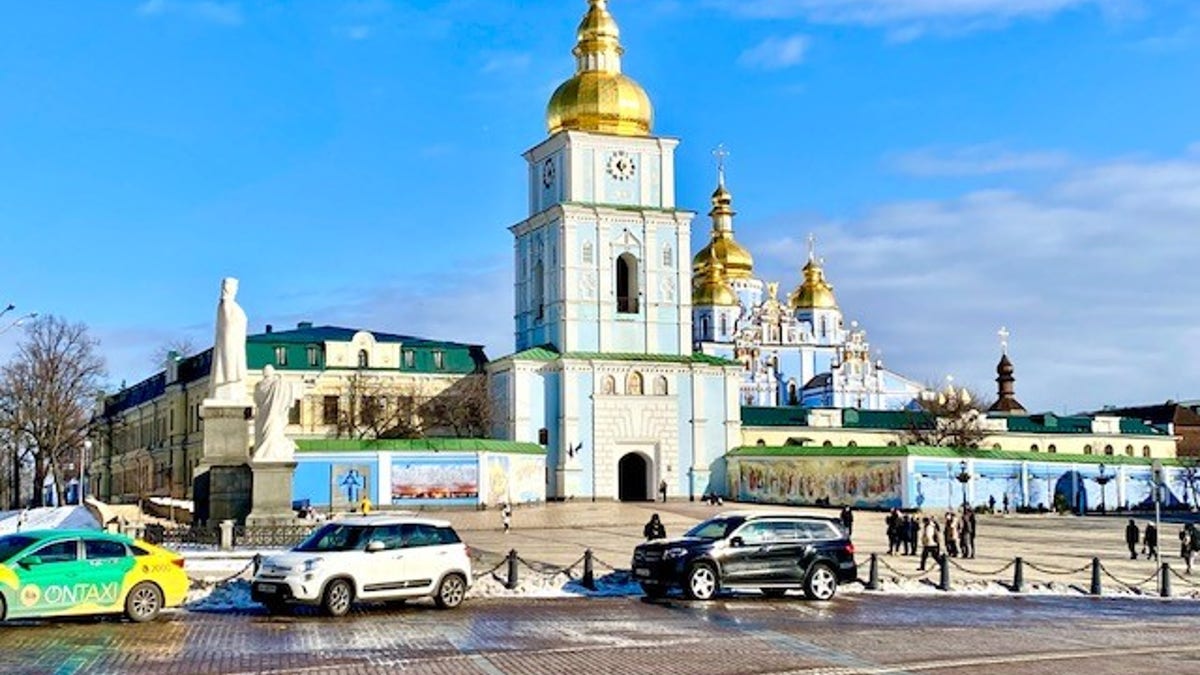
Kyiv in January. Several weeks later Russia began its brutal invasion (Fox News)
On Feb. 24, Russia invaded, and it soon became apparent that what intelligence reports had failed to factor in was the incredible resilience of Ukrainian forces. Vastly outnumbered and outgunned, they held back the Russian army, fighting street by street, field by field - fighting for every inch of land.
As this brutal conflict enters its 100th day, the atrocities perpetrated against Ukrainian civilians are shocking. Driving through the suburbs of Kyiv, you see first-hand the devastation caused by relentless Russian artillery. Apartment buildings have been destroyed, in some cases reduced to rubble. Others are scorched, their facades blackened.
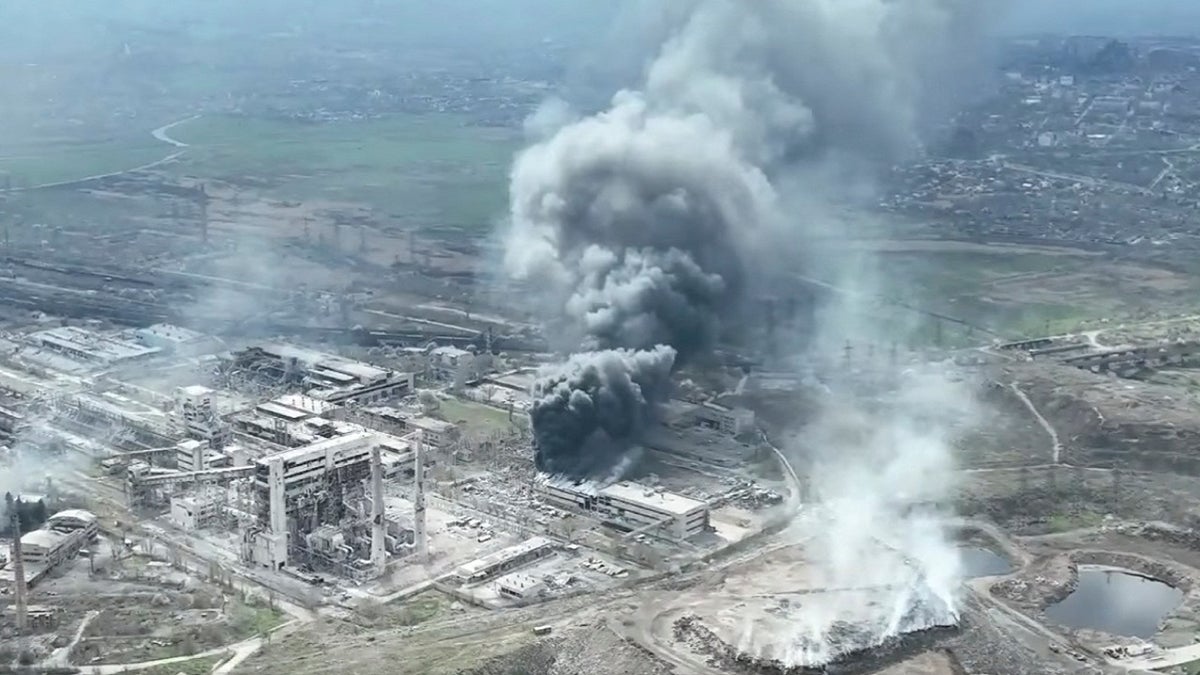
Smoke rises above Azovstal steelworks, in Mariupol, Ukraine, in this still image obtained from a recent drone video posted on social media. (MARIUPOL CITY COUNCIL/via REUTERS THIS IMAGE HAS BEEN SUPPLIED BY A THIRD PARTY. MANDATORY CREDIT. NO RESALES. NO ARCHIVES.)
Cities that few in the western world could have named have sustained unimaginable damage. Mariupol, Kharkiv, Kherson. There are reports that more than 21,000 people have been killed in Mariupol alone, most of them civilians trapped and unable to escape. The death toll is staggering.
It’s hard to convey the overall atmosphere here. Thousands of people have returned to Kyiv, but it remains a virtual ghost town. Air raid sirens wail throughout the day and night but there have been no missile attacks. Nonetheless, President Volodymyr Zelenskyy continually encourages people to remain vigilant and seek shelter.
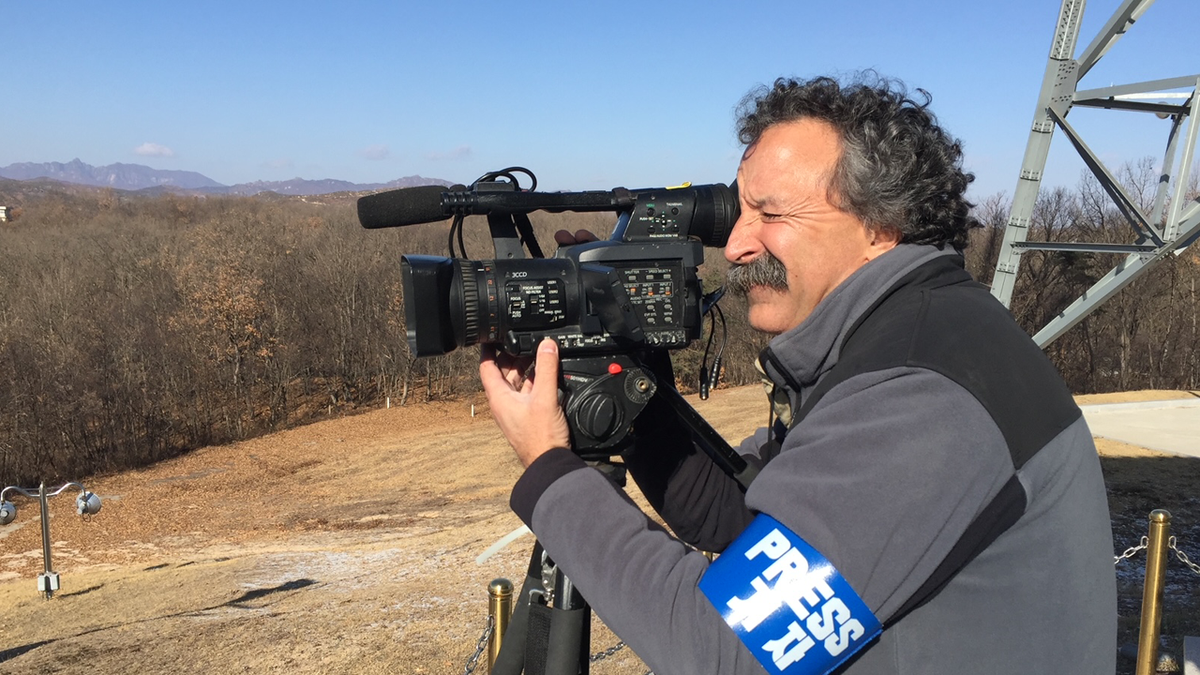
Pierre Zakrzewski (Fox News)
You worry constantly here about your co-workers' safety. On March 14, we tragically lost two colleagues in this war. I was in Lviv in the western part of the country when we heard our longtime cameraman Pierre Zakrzewski and our local Ukrainian producer, Oleksandra' 'Sasha Kuvshinova, had been killed in an artillery strike in Irpin. Correspondent Benjamin Hall was seriously wounded. It’s a day that’s seared into my soul. An absolutely tragic and heartbreaking occurrence.
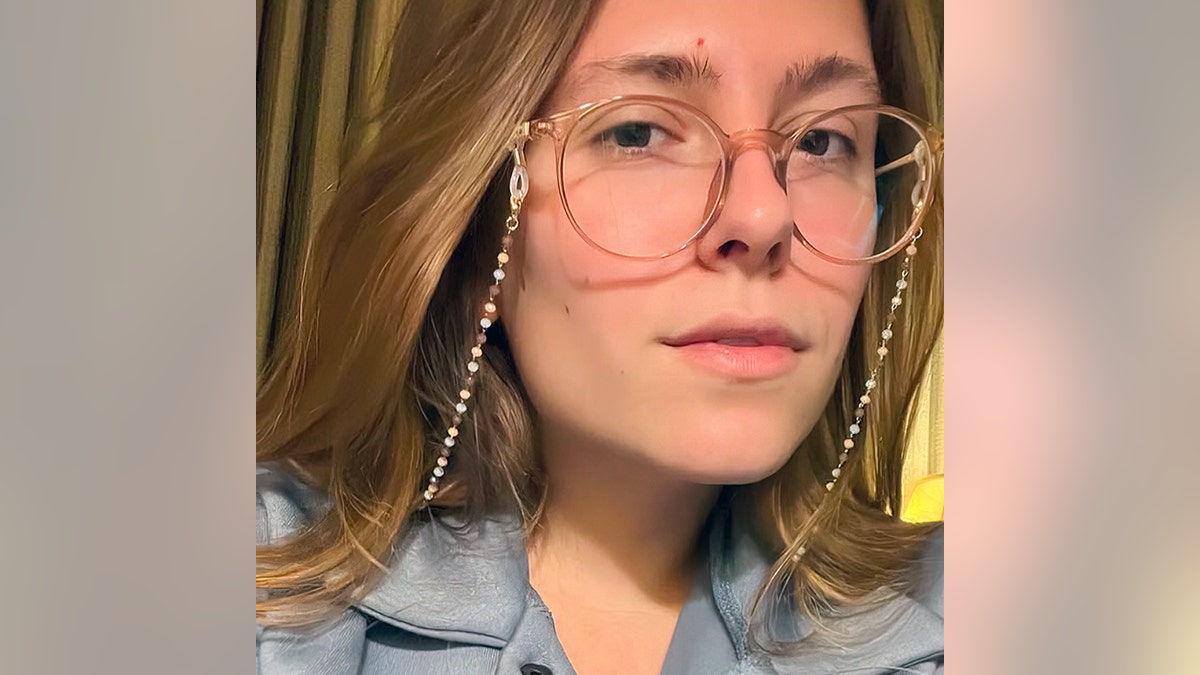
Fox News’ group of journalists covering Russia’s invasion of Ukraine said Sasha Kuvshinova was an essential member of the newsgathering team on the ground. (Oleksandra Kuvshinova Linkedin)
OLEKSANDRA ‘SASHA’ KUVSHINOVA FOX NEWS COLLEAGUES REMEMBER HER LIFE
Now, as we travel to cover stories in the towns and villages that suffered such heavy losses, we often pass the corner where our friends lost their lives. We’ve stopped a few times, last week leaving flowers in the national colors of Ukraine. Sasha would have liked that. She was only 24-years old, a young woman with so much life left to live. She also understood the importance of getting the story of what is happening here out to the world, and it’s a responsibility I believe in wholeheartedly. This is a critically important story, perhaps the most important since 1945. We literally stand on the cusp of World War III and the slightest spark could ignite a European war that could drag the whole world into conflict.
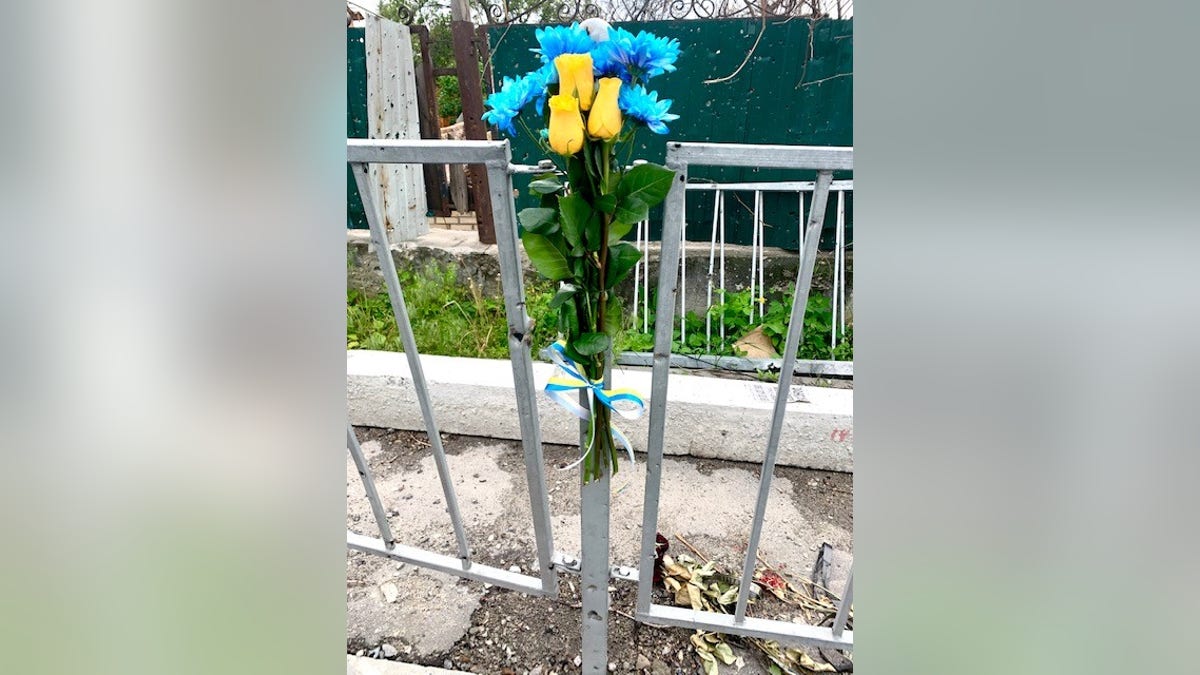
We often pass the corner where our friends lost their lives. We've stopped a few times, last week leaving flowers in the national colors of Ukraine. Sasha would have liked that. (Andrew Fone/Fox News)
Not far from Kyiv, the town of Bucha has become synonymous with Russian war crimes. Civilians were indiscriminately murdered, some tortured before they were executed. Bodies littered the streets, burned to try and hide the brutalities inflicted on them. Untold numbers of women suffered sexual assaults. So many people were killed they were buried in a mass grave behind the local church.
Since the Russian withdrawal, Bucha is slowly coming back to life. But there’s a pall that hangs over this town, a sadness that can’t be erased.
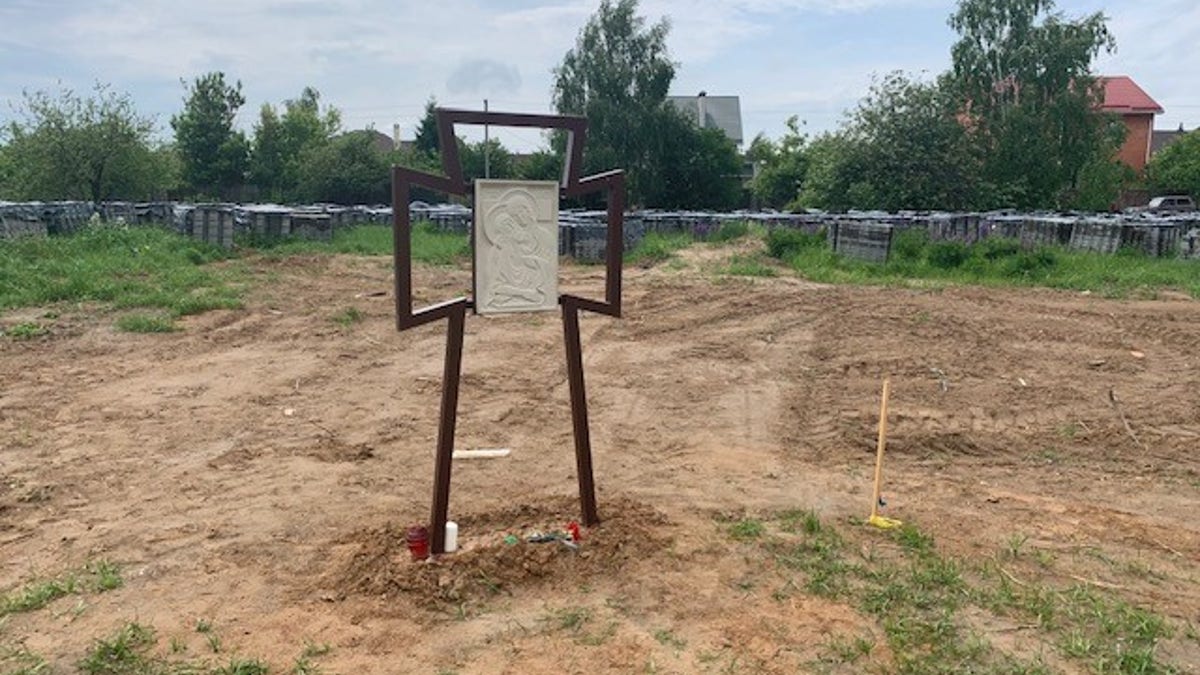
A mass grave in Bucha, May 30th, 2022 (Andrew Fone/Fox News)
On a narrow dirt road not far from the center of town, Alla Nechiporenko is just trying to make it through another day. After the Russians arrived her husband, Ruslan, set out on his bicycle with their teenage son to find food. According to Alla, they were wearing white armbands to signify they were civilians but soon encountered a Russian checkpoint.
"When my husband raised his hands and began to turn towards my son, two shots were fired at him, and then two shots at my child as well. And when the child fell on the asphalt, a third shot was fired in the direction of his head," she said. There’s no inflection in her voice, as if the mere effort of speaking is exhausting.
The bullet passed through the hood of her son’s jacket, narrowly missing his head, and he suffered a gunshot wound to the arm. His father was fatally wounded, dying next to him.
CLICK HERE TO GET THE FOX NEWS APP
The pain of loss is etched on Alla’s face, and she said the weeks since her husband was killed have been difficult morally, psychologically, and financially.
"Our family was provided for by my husband. We turned to a psychologist for help. I try not to be left alone, I went to work, and I am constantly trying to be engaged in something so that there is no free time. I often visit the cemetery, that's how my life goes."
The damaged buildings can be rebuilt, but the lives torn apart by this war cannot.










































